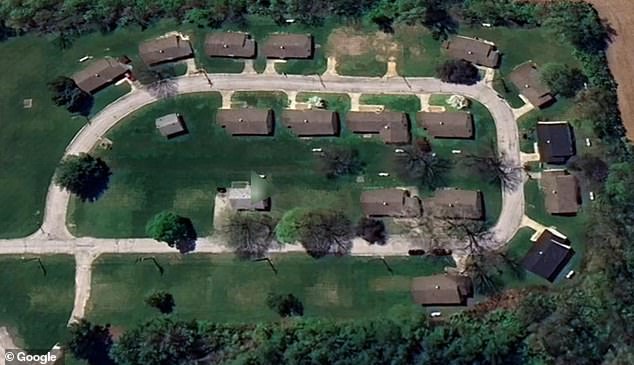Residents of a small town are in an uproar over plans to replace a street that houses disabled people with people with mental health and drug problems.
The remote neighborhood of 20 houses on Turkey Hill in Belleville, Illinois, was used for 40 years for adults with developmental disabilities.
St Clair Associated Vocational Enterprises provided them with a community, often with their families, and provided them with jobs at its nearby facilities.
But the program was closed last year after state policy changed to favor integrating disabled people into the community rather than segregating them.
As a result, SAVE lost funding from the Illinois Department of Human Services and discontinued the program, although it maintained its vocational day programs.
The remote neighborhood of 20 houses on Turkey Hill in Belleville, Illinois, was used for 40 years for adults with developmental disabilities.
With the houses empty, SAVE reached an agreement with Comprehensive Behavioral Health Center to house its clients in 15 of the remaining 17 buildings.
CBHC has a $537,000 federal grant from the Department of Housing and Urban Development to provide low-income housing for people with behavioral disabilities.
People who would move there include people with mental illness, substance abuse issues, people who are homeless or struggling with other crises.
“Our mission is to provide quality individualized essential services for people in need of emotional, rehabilitative and social support, twenty-four (24) hours a day, in the least restrictive environment,” their website reads.
However, rumors spread like wildfire in nearby neighborhoods that originally thought the houses would house immigrants from Chicago.
When they found out who was actually moving in, they feared an influx of violence in their community.
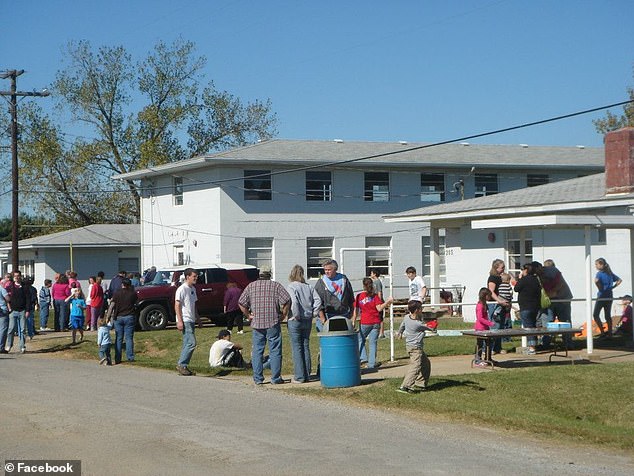
St Clair Associated Vocational Enterprises provided them with a community, often with their families, and provided them with work at its nearby facility.
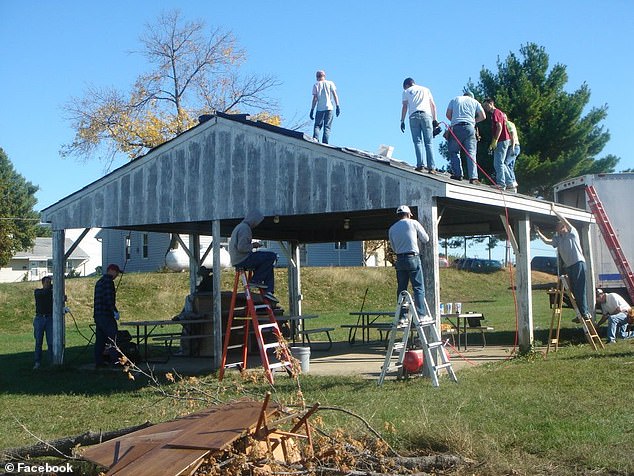
Residents build a structure as part of their vocational training
“What I’m most worried about is drive-by shootings or people fighting and then shots are fired,” Ginger Miller, who lives nearby, told the newspaper. Belleville News-Democrat.
“I know Freeburg police don’t have the staff to patrol regularly and our county police are already stretched thin.”
Frank Heiligenstein, who lives in nearby Freeburg, heads the St. Clair County Citizens Federation and put the issue on the agenda for its Wednesday meeting.
He originally titled it ‘Chicago Immigrant Relocation to Turkey Hill SAVE Site’ until he learned the truth.
“We could have been better off with the arrival of immigrants because they aspire to go and work somewhere,” he said.
‘We have several facilities here… that use immigrants, legal and illegal. Some of them have to use them to sustain their operations.’
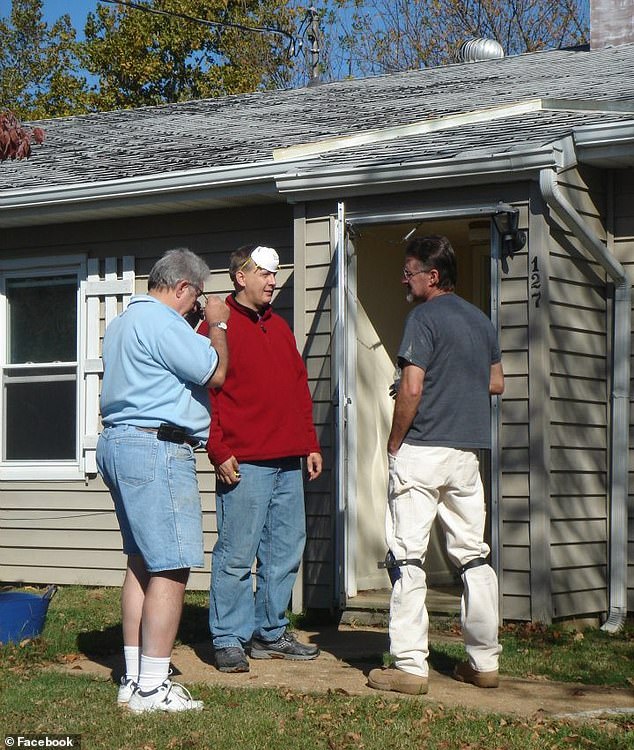
The small, bare-bones houses, seen here undergoing maintenance, were built to house personnel at a U.S. Air Force radar base in the 1950s and 1960s.
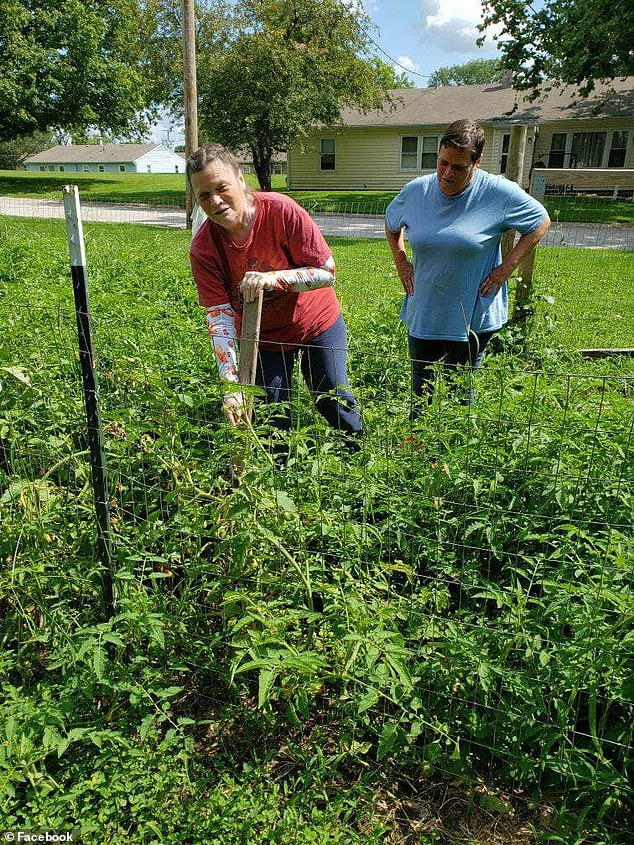
Disabled residents work in a garden within the small neighborhood
SAVE executive director Paul Wibbenmeyer said renting the homes to CBHC would give the organization some income and still help people.
‘The homes will have a use that will not be very different from what we have done in the past. We served a population that had challenges,’ he told the newspaper.
“The people that the HUD grant is designed to help have their own challenges.”
CBHC CEO Joe Harper said the people who would be moving were already in the community and needed their help.
“We’re trying to help them by giving them a stable place to live so they can become contributing members of the community,” he said.
Wibbenmeyer said CBHC would have one employee on sight at all times, and more than one most of the time.
The group was considering providing a shuttle bus to transport residents out of the isolated neighborhood, and some may have their own cars.
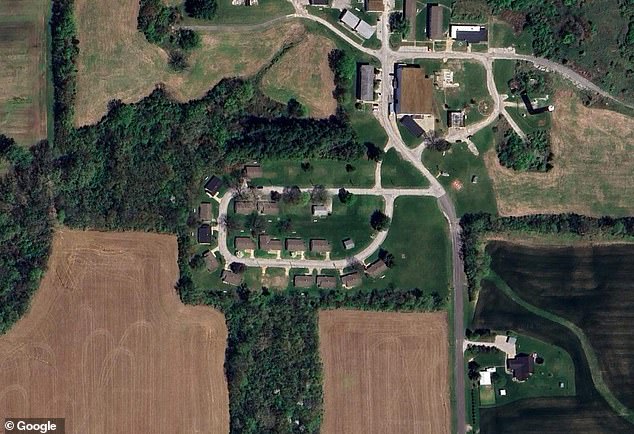
The neighborhood is remote, with SAVE facilities (above right), including warehouses and assembly and packaging plants nearby, where disabled clients, both residents and those who come just for the day, learn vocational skills and work for wages.
CBHC provides therapeutic counseling, psychosocial testing, individual and group therapy, crisis intervention, consultation, community intervention, psychiatric evaluation, case management services, referral and outreach services.
Other services include drug treatment, teen parenting classes, and transitioning out of homelessness.
The small, basic frame houses were built to house personnel at a U.S. Air Force radar base in the 1950s and 1960s.
The government allowed SAVE to use it in 1975 and then gifted it the land and buildings.
SAVE has warehouses and nearby assembly and packaging plants where disabled customers, both residents and day-trippers, learn vocational skills and work for wages.

